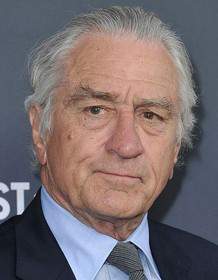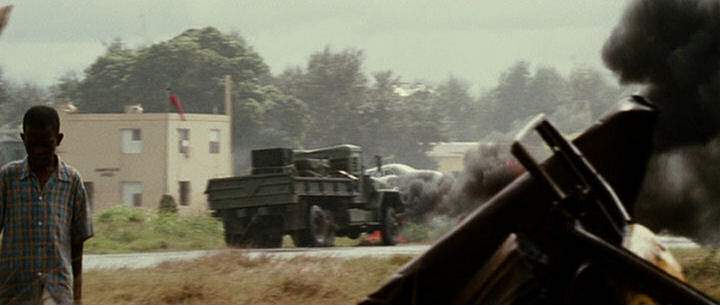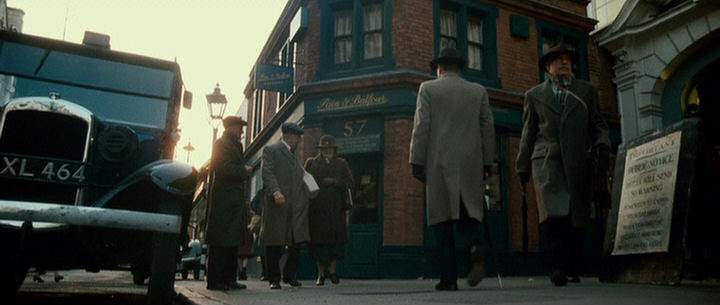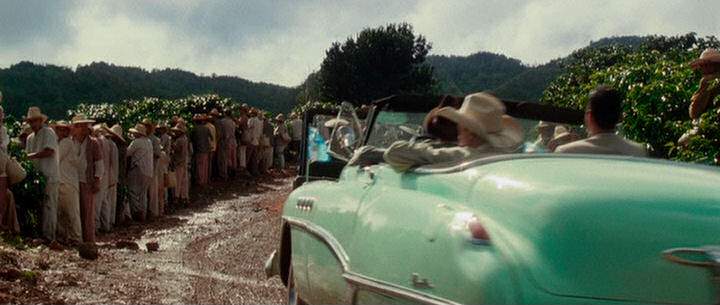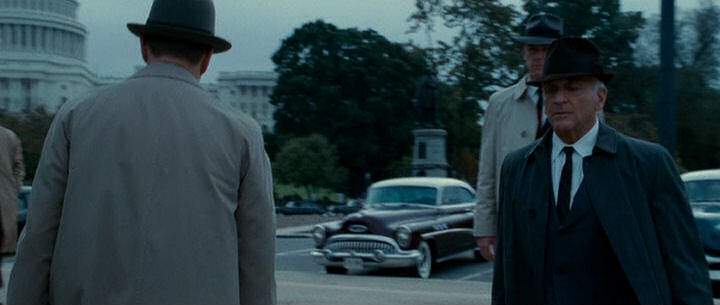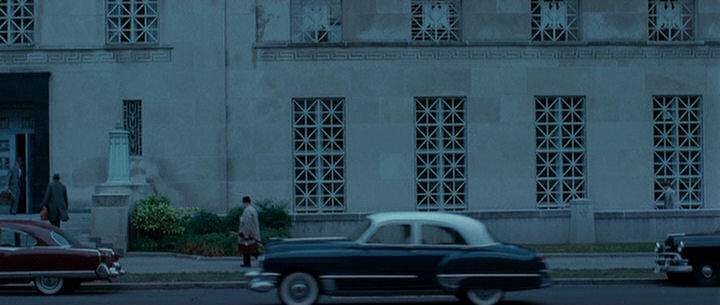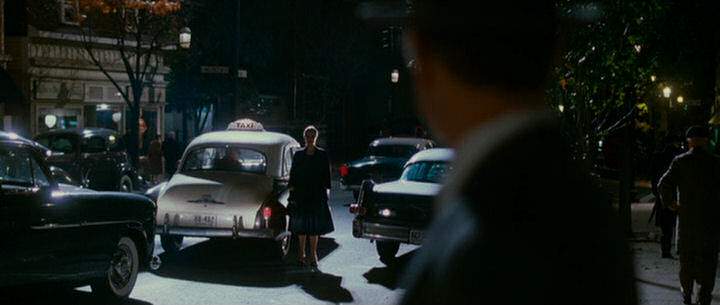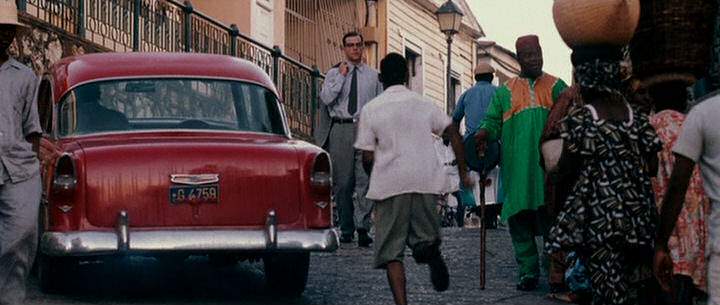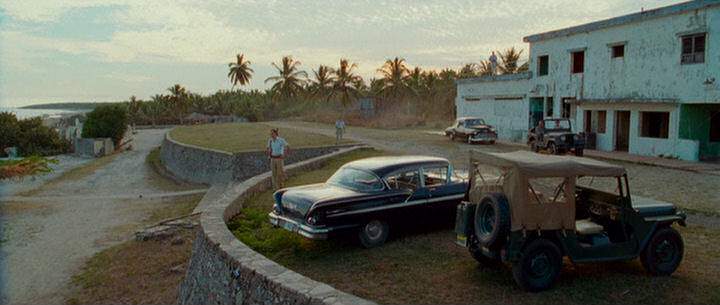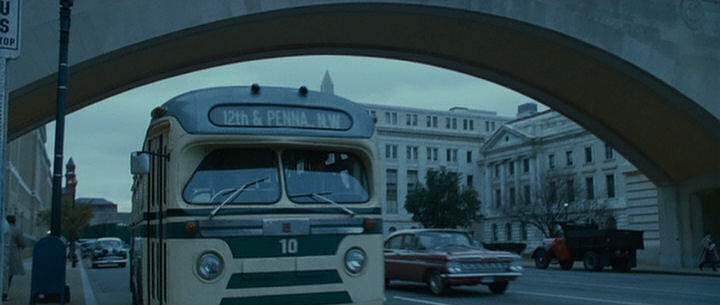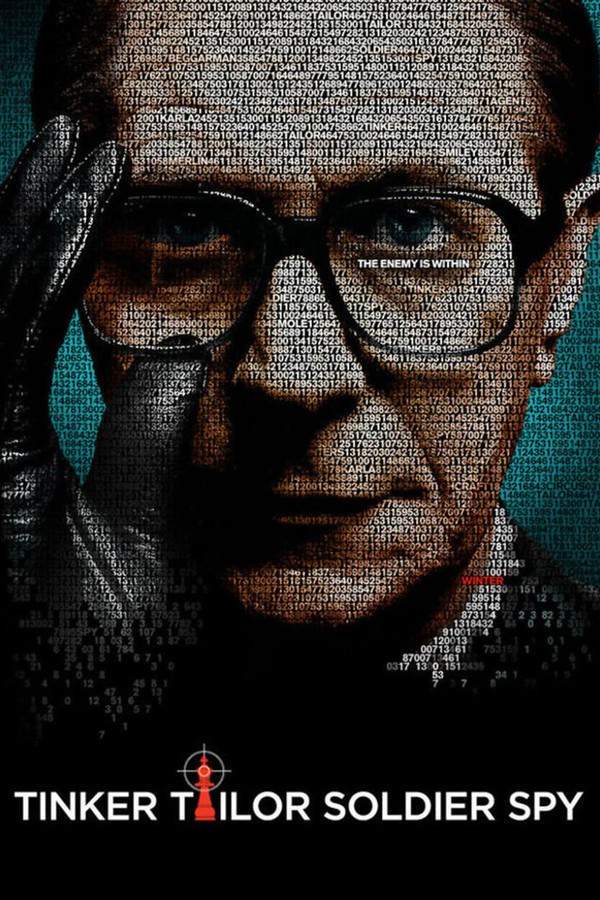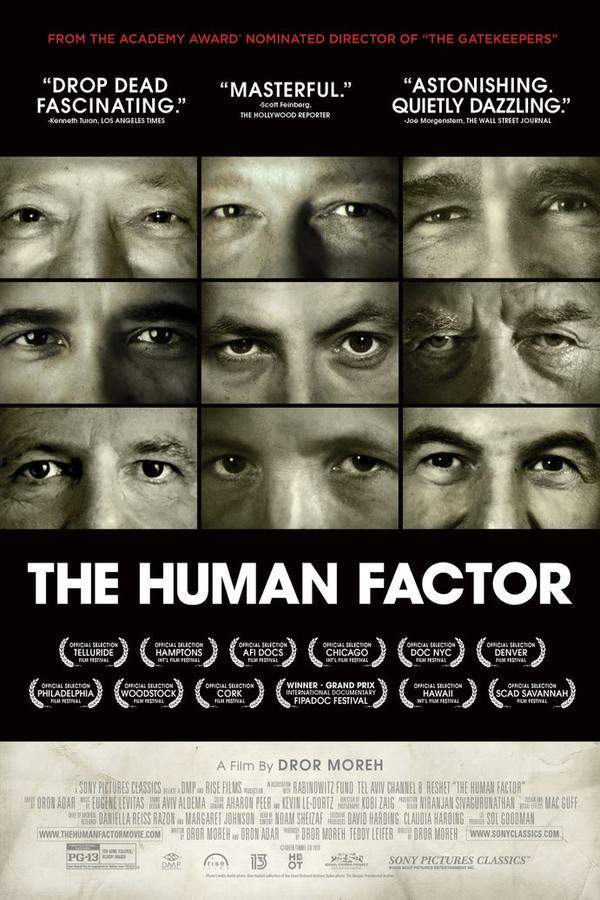The Good Shepherd 2006

A man's unwavering dedication to the Central Intelligence Agency shapes his life as he rises through the ranks of the OSS and CIA during the Cold War. Matt Damon portrays Edward Wilson, whose loyalty and sense of duty demand a significant sacrifice, profoundly impacting his personal relationships and forcing him to grapple with the hidden costs of his profession amidst a climate of secrecy and suspicion.
Does The Good Shepherd have end credit scenes?
No!
The Good Shepherd does not have end credit scenes. You can leave when the credits roll.
Meet the Full Cast and Actors of The Good Shepherd
Explore the complete cast of The Good Shepherd, including both lead and supporting actors. Learn who plays each character, discover their past roles and achievements, and find out what makes this ensemble cast stand out in the world of film and television.
External Links and Streaming Options
Discover where to watch The Good Shepherd online, including streaming platforms, rental options, and official sources. Compare reviews, ratings, and in-depth movie information across sites like IMDb, TMDb, Wikipedia or Rotten Tomatoes.
Ratings and Reviews for The Good Shepherd
See how The Good Shepherd is rated across major platforms like IMDb, Metacritic, and TMDb. Compare audience scores and critic reviews to understand where The Good Shepherd stands among top-rated movies in its genre.

61
Metascore
6.8
User Score


%
TOMATOMETER

0%
User Score

5.2 /10
IMDb Rating

63
%
User Score
Take the Ultimate The Good Shepherd Movie Quiz
Challenge your knowledge of The Good Shepherd with this fun and interactive movie quiz. Test yourself on key plot points, iconic characters, hidden details, and memorable moments to see how well you really know the film.
The Good Shepherd Quiz: Test your knowledge on the intricacies of espionage and personal conflict in 'The Good Shepherd'.
What event is Edward Wilson grappling with at the beginning of the film?
Bay of Pigs invasion
World War II
Watergate scandal
Pearl Harbor attack
Show hint
Awards & Nominations for The Good Shepherd
Discover all the awards and nominations received by The Good Shepherd, from Oscars to film festival honors. Learn how The Good Shepherd and its cast and crew have been recognized by critics and the industry alike.
79th Academy Awards 2007
Art Direction
Full Plot Summary and Ending Explained for The Good Shepherd
Read the complete plot summary of The Good Shepherd, including all major events, twists, and the full ending explained in detail. Explore key characters, themes, hidden meanings, and everything you need to understand the story from beginning to end.
In 1961, the catastrophic Bay of Pigs invasion leaves a lingering shadow. Senior CIA officer Edward Wilson is alerted to rumors of a suspected “mole” within his ranks. Upon returning home, he stumbles upon a picture of a man and woman entwined in bed, alongside altered audio tapes that obscure key truths.
Reflecting back to 1939, we find Wilson at Yale University, where he is invited to become a member of the exclusive Skull and Bones fraternity. During this initiation, he reveals the existence of a suicide note penned by his father, Thomas, an admiral whose loyalty was questioned, preventing him from ascending to the position of Secretary of the Navy.
The plot thickens when FBI agent Sam Murach recruits Wilson to scrutinize his poetry professor, Frederick, rumored to have Nazi sympathies. After he is outed, Frederick resigns. Soon, Wilson becomes romantically involved with Laura, a fellow Yale student who cannot hear. As the outbreak of World War II becomes imminent in Europe, Laura proposes intimacy but halts at the last moment.
In 1940, a social gathering introduces Wilson to Margaret “Clover” Russell, sister of fellow Bonesman John. He also meets General Bill Sullivan, who informs him that the U.S. will need to enter the war, offering Wilson a role within foreign intelligence. Captivated by Clover’s aggressive allure, despite her family’s isolationist background, Wilson finds himself unable to resist her advances.
As tensions rise, Wilson has a fateful encounter with John, who reveals that Clover is pregnant, suggesting responsibility falls upon Wilson to marry her. This revelation leads Laura, who reads their lips, to walk away in despair. On the day of Wilson and Clover’s wedding, he receives orders to report to London.
Upon arrival in London, Wilson reunites with Dr. Fredericks, a covert British intelligence operative who initially recommended him for counter-espionage training. Here, Arch Cummings of the Special Operations Executive warns Wilson that Fredericks poses a security risk due to his indiscreet relationships and ultimately meets a tragic end through assassination when he refuses to cooperate.
In the post-war chaos of Berlin, Wilson collaborates with a Soviet agent known as “Ulysses” during the exchange of captured scientists. In a twist of fate, he learns from a phone call that Clover is unfaithful. A brief affair with his interpreter, Hanna Schiller, ends tragically when he discovers she is also a Soviet operative, resulting in her death.
By 1946, Wilson returns to a colder home, where Clover resumes her birth name, Margaret. Each confesses to infidelities, including the sorrowful news of John’s demise in war. General Sullivan approaches once more, this time to aid in the formation of the CIA alongside colleague Richard Hayes, under the directorship of Phillip Allen.
Despite the genuine bond he shares with his son, Edward Jr., Wilson finds Margaret’s growing discontent due to his work-first attitude increasingly unbearable. A high-ranking KGB defector, Valentin Mironov, presents concerning intelligence about “Ulysses,” warning of others impersonating him seeking refuge. In an unexpected reunion at a play, Wilson reconnects with Laura, sparking an affair that ends when Margaret discovers incriminating photographs and confronts him publicly.
Chaos ensues when another defector challenges the reputation of Mironov, revealing deep layers of deception and double agents. During a nightmarish interrogation, Mironov manages to escape by launching himself out a window, while others get ensnared in this web of deceit, including Edward Jr.
As Edward Jr. follows in his father’s footsteps to Yale, he expresses an interest in the CIA, prompting an emotional confrontation between him and Wilson where he admits he married Margaret begrudgingly, merely out of obligation. When relations with Cuba destabilize due to Fidel Castro’s rise, Edward Jr. learns of the Bay of Pigs operation, instilling concern in Wilson over his son’s silence and Margaret’s decision to leave him.
In 1961, after the Bay of Pigs debacle, the CIA meticulously analyzes the dubious recordings entrusted to Wilson. An investigation in Léopoldville, Congo, uncovers unsettling truths about his son. When “Ulysses” presents an unfiltered recording with Edward Jr. disclosing critical information to his girlfriend, Miriam, the stakes escalate, leading to tragedy when she is ultimately assassinated, unbeknownst to Wilson.
As Edward processes the chaos, he visits the new CIA headquarters, where he contemplates the Biblical inscription that decorates the lobby: “And ye shall know the truth, and the truth shall make you free (John 8:32).” Meanwhile, internal corruption comes to light with Philip Allen’s disgraceful resignation following embezzlement revelations. Newly appointed Hayes promotes Wilson to head the CIA’s counter-intelligence operations, contemplating the deeper implications of agency identity.
In a poignant conclusion, Wilson finally decides to confront his father’s suicide note, which confesses betrayal and pleads for forgiveness, while urging Wilson to live with integrity. As he prepares to step into his role in the newly established counter-intelligence division, Wilson burns the note, signifying a tumultuous, yet transformative chapter in his life.
Uncover the Details: Timeline, Characters, Themes, and Beyond!

Coming soon on iOS and Android
The Plot Explained Mobile App
From blockbusters to hidden gems — dive into movie stories anytime, anywhere. Save your favorites, discover plots faster, and never miss a twist again.
Sign up to be the first to know when we launch. Your email stays private — always.
Watch Trailers, Clips & Behind-the-Scenes for The Good Shepherd
Watch official trailers, exclusive clips, cast interviews, and behind-the-scenes footage from The Good Shepherd. Dive deeper into the making of the film, its standout moments, and key production insights.
Cars Featured in The Good Shepherd
Explore all cars featured in The Good Shepherd, including their makes, models, scenes they appear in, and their significance to the plot. A must-read for car enthusiasts and movie buffs alike.
The Good Shepherd Themes and Keywords
Discover the central themes, ideas, and keywords that define the movie’s story, tone, and message. Analyze the film’s deeper meanings, genre influences, and recurring concepts.
The Good Shepherd Other Names and Titles
Explore the various alternative titles, translations, and other names used for The Good Shepherd across different regions and languages. Understand how the film is marketed and recognized worldwide.
Similar Movies To The Good Shepherd You Should Know About
Browse a curated list of movies similar in genre, tone, characters, or story structure. Discover new titles like the one you're watching, perfect for fans of related plots, vibes, or cinematic styles.
Quick Links: Summary, Cast, Ratings, More

What's After the Movie?
Not sure whether to stay after the credits? Find out!
Explore Our Movie Platform
New Movie Releases (2026)
Famous Movie Actors
Top Film Production Studios
Movie Plot Summaries & Endings
Major Movie Awards & Winners
Best Concert Films & Music Documentaries
Movie Collections and Curated Lists
© 2026 What's After the Movie. All rights reserved.


